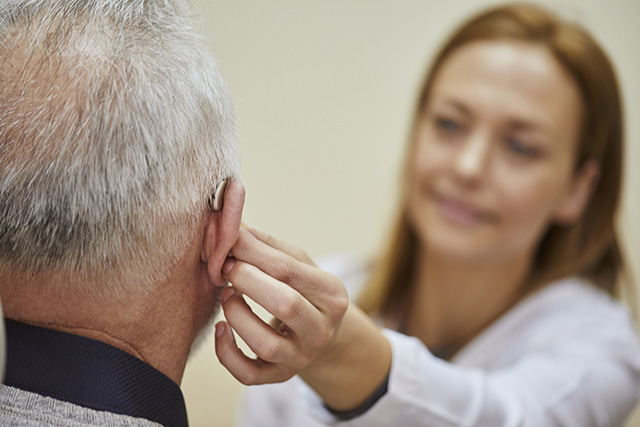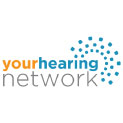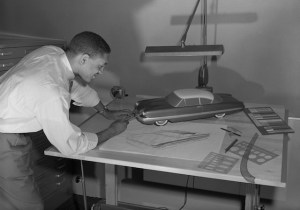Sirens, horns and railroad crossing bells are just a few of the sounds we hear on the road. These everyday noises serve as alerts and warnings of what’s happening in and around our car and can affect our actions. Without them, we are left dangerously unaware and unalert. Yet, failure to pick up important sounds while driving is a reality for many drivers with hearing impairment and declining auditory abilities.
Hearing Loss and Age
Since hearing loss often happens gradually with age, you may not realize that you are not hearing the typical driving sounds as well as you used to.
Approximately 20% of Americans experience significant hearing loss, 50% of which are over the age of 75. Aging is the strongest predictor of impairment among adults, with age-related changes beginning at age 40. Since many drivers eventually face hearing loss, it’s valuable to learn more about the condition and take the necessary steps to stay safe behind the wheel.
Known as presbycusis, hearing loss due to age affects us in several ways, including a diminished ability to perceive-high frequency sounds. It is often compounded by other conditions that affect the ear such as impacted wax. When hearing in one ear is worse than the other, it is more difficult to determine the location of sounds. This can lead to driving issues such as not being able to identify the direction from which a warning sign originates and then reacting in a way that may cause a collision.
As you age, hearing loss can be accompanied by a lessened ability to translate the sounds you do hear into meaningful information. If hearing loss is present along with any degree of confusion, memory loss or dementia, consult a medical professional for an overall health assessment.
While aging, genetic predisposition and certain medical conditions can cause hearing loss, so can noise from occupational conditions, sports events and concerts. The World Health Organization estimates that around 40% of people ages 12 to 35 could be exposed to dangerous noise levels at entertainment venues. Veterans and workers in the public safety and manufacturing sectors are especially at risk of tinnitus, a ringing or buzzing in the ears that results from exposure to loud noise, particularly over an extended period.
Tips for Safe Driving
Schedule Regular Hearing and Vision Tests
Since both hearing and vision tend to decline with age, stay current on your exams. Schedule a hearing test at age 50 and proceed with regular exams every 3 years if results are normal. If any hearing issues are detected, have an exam every year.
Diminished auditory abilities require you to rely more on vision. Eye conditions such as glaucoma, cataracts and macular degeneration could cause difficulty with night driving, so early detection is important.
Recommendations for hearing aids and glasses may be accompanied by instructions to only drive during daylight hours and other advice designed to keep you safe.

Stay Active and Manage Health Conditions
View your overall health as a key part of safe driving. Hearing loss may be accompanied by other age-related conditions such as neck stiffness, arthritis, and diabetes. Consider the amount of flexibility needed to look over your shoulder and parallel park on a car-lined street. Regular physical exercise in the form of walking and strength training makes it easier to manage many conditions and engage in the movements necessary for driving. If you are taking medication, check the labels and ask your doctor about side effects to avoid driving while drowsy or dizzy.
Understand and Adapt to Physical Changes
When physical changes make it more difficult to drive for any reason, adjusting your driving patterns and utilizing driver assistance technologies can help to make you more comfortable behind the wheel. Shorter trips are a good option if you experience leg cramps on long excursions. If you are in the market for a new car, consider a model with a larger dashboard display and safety features such as lane assist and collision warning systems that can help prevent accidents. Some cars also have haptic alerts such as a vibrating steering wheel to indicate when the car is drifting into another lane.
Avoid Distractions
Everyone should avoid distractions such as using the phone while driving, but for those with hearing loss, this is even more critical. Activities that take your attention away from the road should be avoided, so take steps that allow you to drive with focus. For instance, enter your destination into the GPS system before you begin driving. Especially consider the impact of other noises on your ability to hear. Conversations, music and road noise will distract you from hearing essential sounds.
Drive Under Good Conditions
Set yourself up for a safe trip by driving only when you feel well and alert. If you slept poorly or the road and weather conditions are not ideal, wait until the situation improves before getting behind the wheel. Even the time of day can affect how comfortable you may be while driving. For instance, rush hour may be a time to avoid due to busy intersections and high traffic.
Take a Driver Safety Course or Update Your Skills
The ability to identify and react to a potentially dangerous situation can help prevent possible collisions due to other drivers, bad weather and other hazards. A defensive driving course can help you identify these risks and teach you how to reduce the chance of an accident. Simple steps such as maintaining a good distance from the car in front of yours, braking at the appropriate time and paying extra attention at intersections help keep everyone safe. It’s always a good time to refresh your driving skills.
Rest assured that it’s possible to be a good driver even if you are experiencing hearing loss. An audiologist can help you to identify the best hearing solution for your impairment and provide customized advice.
Learn more about hearing loss solutions.














